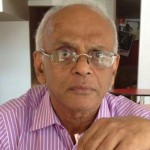In many respects,
Cyprus and
Sri Lanka have parallels. Both are former British colonies which gained independence in mid 20
th century, 12 years apart from each other. Both had been embroiled in a costly ethnic war for decades. Both are islands located on convenient naval routes – Cyprus in the Mediterranean and Sri Lanka in the Indian Ocean – offering enormous economic prospects. Both have no natural resources except a hint of some off-shore natural gas deposits in Cyprus and identified oil and gas deposits in off-shore Sri Lanka. In both countries, it is yet to establish whether these deposits are commercially viable. Both have skewed economies with a huge services sector, a light industrial sector and a relatively small agricultural sector. In the case of Cyprus, services produce 82 percent of its wealth and agriculture only 2 per cent. The relevant ratios for Sri Lanka have been 60 per cent and 12 per cent for the latest data. In the services sector, Cyprus has developed three hubs – naval, aviation and banking – to boost the services income in the balance of payments or BOP and thereby meet the huge trade deficit. Sri Lanka is also planning to develop five hubs which include these three as well for the same reason, namely, financing the huge trade deficit through a diversification of foreign earnings. In the recent past, Cyprus has tapped cheap hot money in the international markets – money that moves around in search of higher interest incomes but does not stay in a country permanently – mainly from Russia to fill the gap in the BOP. Sri Lanka too has tapped such hot money into its government securities market mainly from USA as reported in the media to fill the gap in the BOP and thereby build its foreign reserves.
The Commonwealth Secretariat Tuesday said Sri Lanka’s human rights situation will not be on the agenda of the Commonwealth Ministerial Action Group (CMAG) meeting next month.
Some countries, especially Canada, had tried to include Sri Lanka on the agenda citing its poor rights record and to push for a change of venue for the Commonwealth Heads of Government Meeting (CHOGM) in November.
However, a spokesman for Commonwealth Secretary General Kamalesh Sharma told reporters that CHOGM 2013 will be held in Sri Lanka as scheduled.
“I can confirm to you that Sri Lanka is not on the agenda for the next scheduled meeting of CMAG on April 26.
“A discussion of CHOGM is not on the agenda for the April 26 CMAG meeting either.
“It was the Commonwealth Heads of government that made the decision to hold the 2013 meeting in Sri Lanka. Such decisions are made at the Commonwealth Heads of Government level and not by CMAG,” the Commonwealth Secretary General’s spokesman Richard Uku said.
“It is important to understand that the CMAG route is not the first option of action in such circumstances. It is one that is resorted to only when intervention efforts through the Commonwealth secretary-general’s good offices have been exhausted, ” he added.
He also said that the Commonwealth will continue to explore opportunities where it can offer its collective wisdom and experience, and will aim to agree by mid-2013 on areas where it can support Sri Lanka’s implementation of the Lessons Learned and Reconciliation Commission (LLRC).
The LLRC is a local war commission appointed after the 30-year war between the army and Tamil Tigers ended in May 2009.



